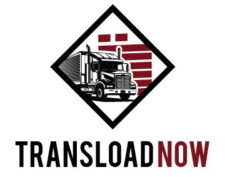Port Tampa Bay, Florida’s largest and most diverse seaport, plays a pivotal role in the flow of goods into and out of the state. The port handles approximately 33 million tons of cargo annually and supports over 85,000 jobs in Central Florida, per Port Tampa Bay publications. Handling everything from refrigerated perishables to automobiles and bulk materials, the port relies heavily on third-party logistics (3PL) warehouses to ensure efficient freight management and distribution. These facilities are the backbone of operations, enabling the port to manage its wide-ranging cargo portfolio.
Specialized Warehousing for a Diverse Cargo Mix in Tampa Florida
Given the variety of goods that pass through Port Tampa Bay, specialized warehousing is essential. Refrigerated goods, such as fruit imported from Central America, require temperature-controlled storage to maintain freshness and adhere to health regulations. Similarly, imported vehicles are stored in facilities specifically designed to handle automobiles, preserving their condition prior to distribution. Bulk commodities like steel coils and lumber demand warehouses equipped for heavy, large-volume goods, ensuring proper handling and storage.
The Role of Containerized Cargo in Distribution Networks
Containerized cargo represents a significant portion of the port’s operations, with shipments such as furniture and packaging materials often arriving from countries like Vietnam. Here, 3PL warehouses provide vital services, including unloading, storage, and preparation for onward distribution.
Many goods are destined for local markets, but a large share is transported to regional distribution hubs, such as facilities along the I-4 corridor or Amazon fulfillment centers. This highlights the importance of efficient warehousing within the larger supply chain, connecting global imports with domestic consumption.

Break-Bulk Cargo: A Specialized Challenge at Port Tampa Bay
Break-bulk cargo, which includes items like steel coils and lumber that cannot be containerized, presents unique challenges. Break-bulk cargo is heavy, large, or awkward freight that cannot be transported inside a container. Instead break-bulk cargo is transported on vessels as individual units. 3PL warehouses equipped for break-bulk handling ensure these goods are efficiently stored and prepared for transport to manufacturing plants or retailers. This capability underscores the adaptability of Tampa’s logistics providers in meeting diverse industry needs.
Infrastructure and Accessibility: A Competitive Edge of Tampa
Port Tampa Bay benefits from excellent connectivity to major transportation networks, a critical factor in maintaining supply chain efficiency. The Selmon Expressway provides direct truck access to interstates I-4 and I-75, reducing transit times and streamlining freight movement. This robust infrastructure is a significant advantage for 3PL warehouses, enabling quick receipt and dispatch of goods while supporting seamless operations across the region.
With over 400 distribution centers located off of the I-4 in Central Florida, Port Tampa Bay is a critical point for importing freight nearby.
Meet Seasonal Warehouse Demand with a Florida 3PL
Demand for warehousing services often fluctuates, peaking during the summer months due to increased consumer activity and the import of seasonal goods. 3PL providers must be agile, scaling their operations to accommodate these shifts. By aligning storage capacity and labor resources with market demands, they ensure uninterrupted service and maintain supply chain reliability.
Navigating Labor and Regulatory Challenges
The operational landscape for 3PL warehouses is shaped by ongoing labor dynamics and regulatory developments. Disputes between longshore workers and port authorities, particularly over automation, in 2024 are likely to influence port and warehouse operations. While automation offers opportunities for increased efficiency and safety, it also raises concerns about job security of the longshoremen. Successful logistics providers remain proactive, adapting to these challenges.
Technology Transforming Warehousing
Advances in technology are revolutionizing the logistics industry. Many 3PL warehouses have adopted sophisticated warehouse management systems (WMS) to streamline operations. For example, Warehousing Etc uses their custom-built Warehouse Management System (WMS) that allows clients to efficiently manage inventory and track orders in real time. Such tools improve accuracy, optimize workflows, and are increasingly becoming a standard in the sector.
Challenges and Opportunities in the Tampa Bay Market
The Tampa Bay area offers both hurdles and opportunities for 3PL providers. Rising real estate costs have led to higher storage rates, potentially driving some businesses to seek alternatives. However, the steady growth in freight volumes and the anticipated retirement of many 3PL business owners present opportunities for new market entrants and expansion. Providers that invest in innovation and strategic growth are well-positioned to capitalize on these trends.
Preparing for Environmental Risks
The Tampa region is no stranger to environmental challenges, particularly hurricanes. For 3PL warehouses, resilience is key. Industrial and commercial zones are often prioritized for power restoration, and many facilities prepare by investing in generators and satellite internet. By implementing robust contingency plans, logistics providers minimize disruptions and maintain operational continuity during extreme weather events.
Conclusion
3PL warehouses are an indispensable part of Port Tampa Bay’s operations, providing specialized services tailored to the port’s diverse cargo mix. By embracing technology, adapting to market trends, and navigating regulatory complexities, these providers play a crucial role in keeping goods flowing efficiently. Their efforts not only bolster the region’s economic vitality but also strengthen Tampa Bay’s position as a critical logistics hub on the global stage.
